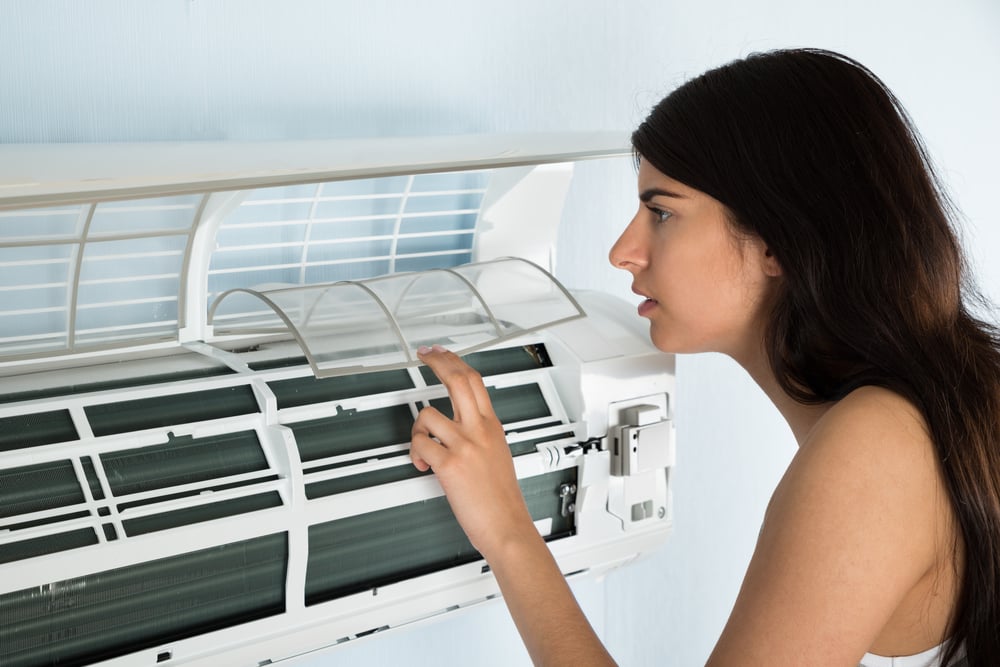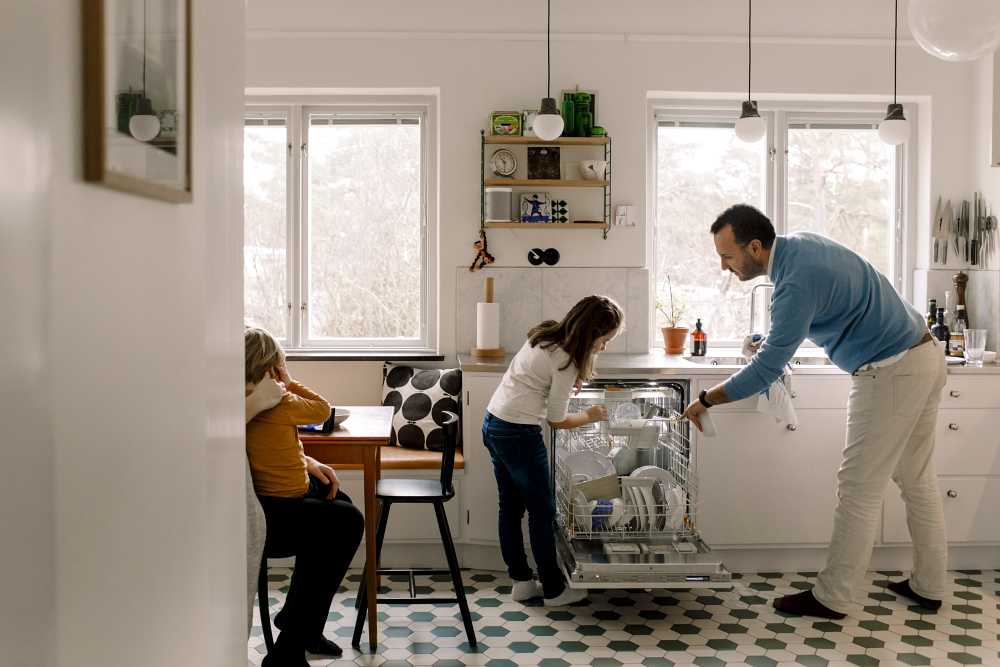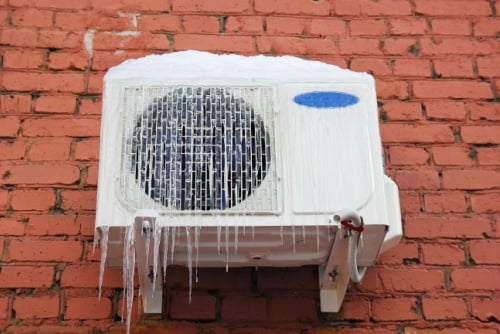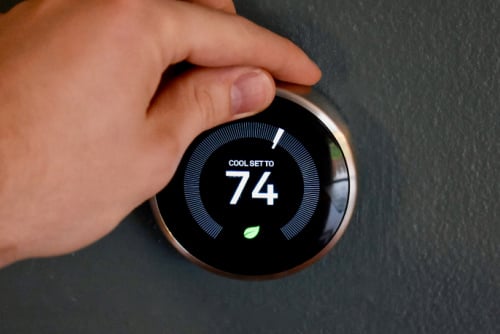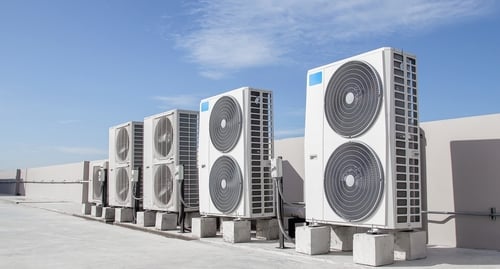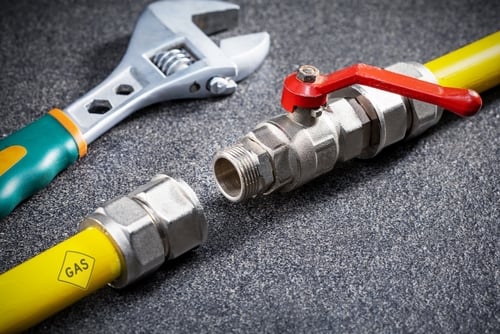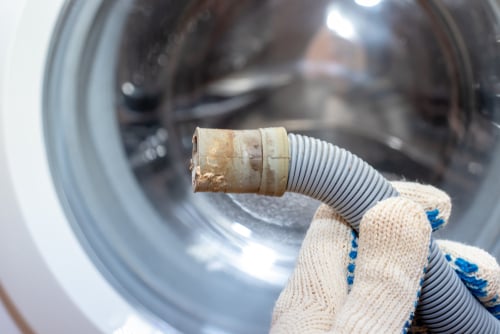Since you’ve grown to rely on your A/C unit to get you through the heat, it can be troubling when you hear unfamiliar or exceptionally loud noises coming from your air conditioner.
Ignoring any mysterious A/C noise can allow minor issues to become major expenses. These noises can signal anything from your air conditioner needing a simple tune-up to the repair or even replacement of the entire unit. The sooner you can determine the cause of the noise and resolve your A/C issues, the better.
Here are some common sounds your A/C unit can make, what they may signify, and how to resolve the issues.
What Kind of Noise is the A/C Making?
1. Banging Noise
If your A/C compressor is making a noise that sounds like banging, there is probably a loose or broken part in the compressor. Hearing an outside A/C unit noise like banging usually means that your unit has experienced wear and tear over time, causing compressor parts to come loose and bang or rattle around. The loose or broken part may be a connecting rod, a piston pin, a crankshaft, or support springs and screws. Alternatively, if you hear the banging noise from inside your home, your indoor blower could be unbalanced.
To fix a banging noise from your A/C compressor, you can use the Frontdoor® App to call an HVAC professional to help you fasten or replace your system’s loose or broken parts. If that doesn’t solve the issue, a full compressor replacement may be required.
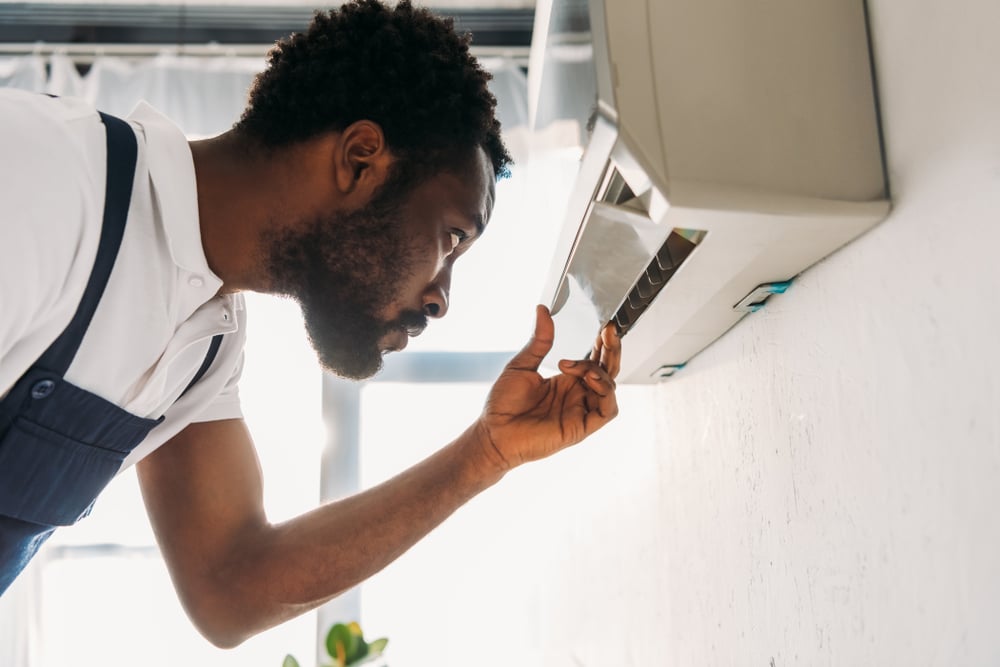
2. Clanking Noise
Clanking is another sign of a loose or broken part. If the noise is coming from your inside unit, the parts inside the sealed unit have likely failed. The compressor itself may have become loose, possibly necessitating a replacement. A clanking sound can also mean that the indoor blower or outdoor fan and its blades are out of balance and hitting other parts.
To fix a clanking noise, you may need to repair your A/C unit’s indoor blower or outdoor fan to set the unit back in balance. It’s always a good idea to call a professional to check out clanking noises before they become bigger problems.
3. Clicking Noise
It’s normal for your A/C to make a clicking noise at the start-up and shutdown of a cooling cycle. However, constant or ongoing clicking is not typical. If you hear these noises from your A/C unit, it could be a sign of:
- An obstruction in the A/C fan - Small twigs and leaves can get lodged in the air outlet and cause a clicking sound.
- Faulty electrical signals - Faulty signals can cause a contactor to click continuously. This can be caused by a short or a malfunctioning thermostat.
- An out of balance A/C fan - A loose or out of balance fan can sometimes result in a clicking noise.
To remedy an A/C fan obstruction, turn off the power at the breaker, lift the outdoor unit cover, and wipe the fans clean. If the noise is not caused by an obstruction, we recommend contacting an HVAC professional to fix the issue.
Does your A/C unit sound noisier than normal? Here are two helpful tips:
- Clear Debris - One of the most common causes of a noisy A/C unit is simply dust, dirt, and debris that has accumulated inside the unit. This is the result of standard use. Clear out anything that shouldn’t be there or might be getting caught in the fan or other parts of the unit.
- Tighten Screws - Another common issue that can lead to a noisy A/C is the loosening of screws and other parts due to normal use and wear and tear. Try tightening them up and determining if that helps the A/C unit run quieter.
4. Buzzing Noise
If your A/C is making a buzzing noise at the outdoor unit, it could indicate a variety of issues:
- Loose parts
- Debris in either the indoor or outdoor unit
- An outdoor fan motor that is loose or about to fail
- Fan blades that are loose or out of balance
- The copper lines running from the outside to the inside are rubbing against something
- The condenser coil needs to be cleaned
- The air filter needs to be changed
- The blower is failing or out of balance
Depending on the source of the issue, you can resolve it by either conducting routine maintenance or calling in a Pro.
If your A/C unit seems to be running outside but isn’t cooling inside, the problem is likely due to refrigerant leaks. Refrigerant leaks result in the air conditioning unit freezing up, and this may or may not be accompanied by buzzing noises depending on how bad the leak is and where it’s located.
5. Squealing Noise

Squeaks and squeals transmitted through the duct system suggest a mechanical or air pressure issue, which could be caused by a malfunctioning blower and fan. Outdoor fan motors and indoor blower motors squeal loudly when they’re going bad, and the blower wheel and housing will also squeal when they malfunction.
Sometimes an A/C unit making a noise like squealing is normal upon start-up. If it’s a sound your unit has always made, it’s probably okay, but if the squealing noise is new, be sure to call a Frontdoor HVAC Expert to diagnose and help repair the issue.
6. Humming Noise
Thankfully, a humming sound coming from your A/C unit generally isn’t serious—but it still signals that something inside your air conditioner is off. Loose parts and refrigerant piping can cause vibration. If left unchecked, you could encounter more serious maintenance issues down the road.
However, some humming noises may be a sign of electrical problems. If you notice loud humming noises from the outside A/C unit and that the compressor hums and refuses to start, it may be because of loose wiring or a faulty motor. Regular A/C maintenance conducted by qualified professionals can help prevent and repair the root of these electrical concerns.
7. Chattering/Rattling Noise
If you hear the A/C condenser making a rattling noise, it can mean that your air conditioner is starting to break down and that some of its parts are deteriorating. Another cause could be twigs or leaves that are clogging the A/C system. If the electrical contractor in the equipment makes a chattering sound, it can indicate damage to the A/C unit components, including the compressor. Another culprit could be the rattling caused by a loose fan.
To try and remedy an A/C rattling noise yourself, check for loose screws or bolts in the unit’s casing, clean its condenser coils, and change your indoor air filter. If you take these steps and your A/C is still rattling, the next step is to call in a professional.
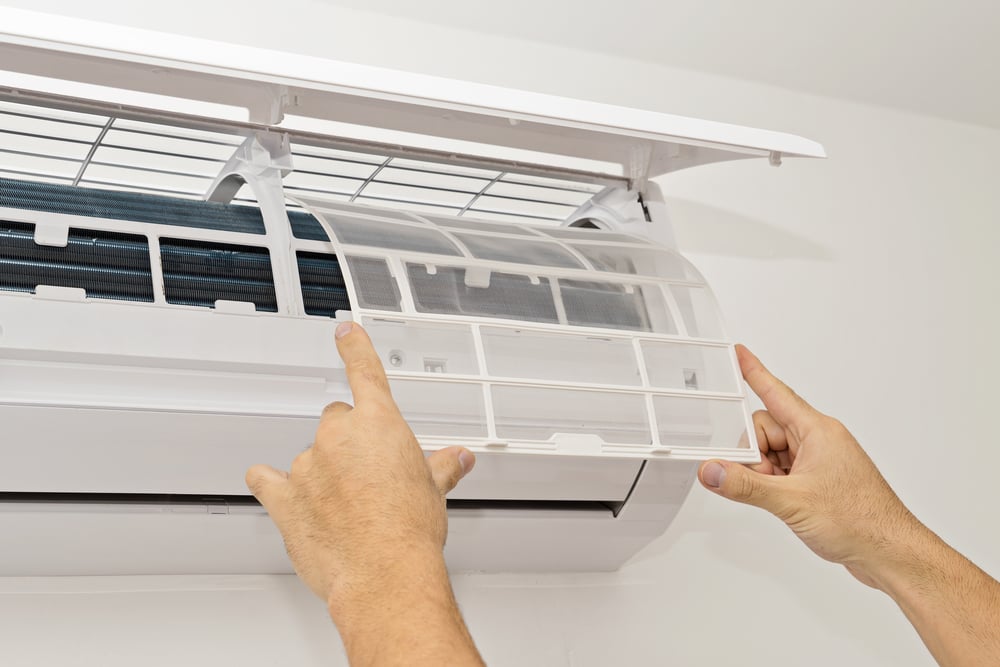
8. Whistling Noise
If you hear a high-pitched whistling or screaming A/C noise, the culprit is most likely a refrigerant leak, which can be dangerous for the health of your air conditioner and your family. It can also indicate high internal pressure in the compressor. Shut off your air conditioner immediately and call a professional.
If your A/C unit starts whistling or screaming and then turns off on its own, that means that the sensor is doing its job and protecting you from a potentially hazardous situation. However, this signals that you need a professional to help immediately. Power off the unit until a repair person can diagnose and fix the issue.
9. Pulsating Noise
An air conditioner making a pulsating or rhythmic thumping noise isn’t necessarily a bad sign. This A/C noise can be perfectly normal when the air conditioner is operating. However, if your outside A/C unit is making a loud noise like thumping that you can hear inside the house, it could signify that something has come loose inside the unit. Some likely culprits include the fan motor and blades, but any loose panel or part could cause a pulsating noise in your A/C.
To mitigate the thumping, see if you can refasten any loose components.
10. Whirring Noise
If your A/C sounds like a helicopter, you could have one of any number of mechanical problems with either the indoor blower or the outdoor unit. Typically, a whirring sound in an A/C is the result of bad bearings in the indoor blower fan motor or a faulty fan in either the indoor blower unit or outdoor unit. When the blades start to come loose or the fan starts to fall apart, a whirring A/C noise can occur. If it seems like a mechanical issue is the culprit, be sure to call in a professional.
Sometimes whirring can be caused by a bad or broken belt somewhere in the system or a piece of paper or other debris trapped in either the indoor blower fan or the outdoor fan unit. If it seems that the whirring noise is caused by debris, simply clear out the inside and outside of the unit with a hose and soft-bristled brush.
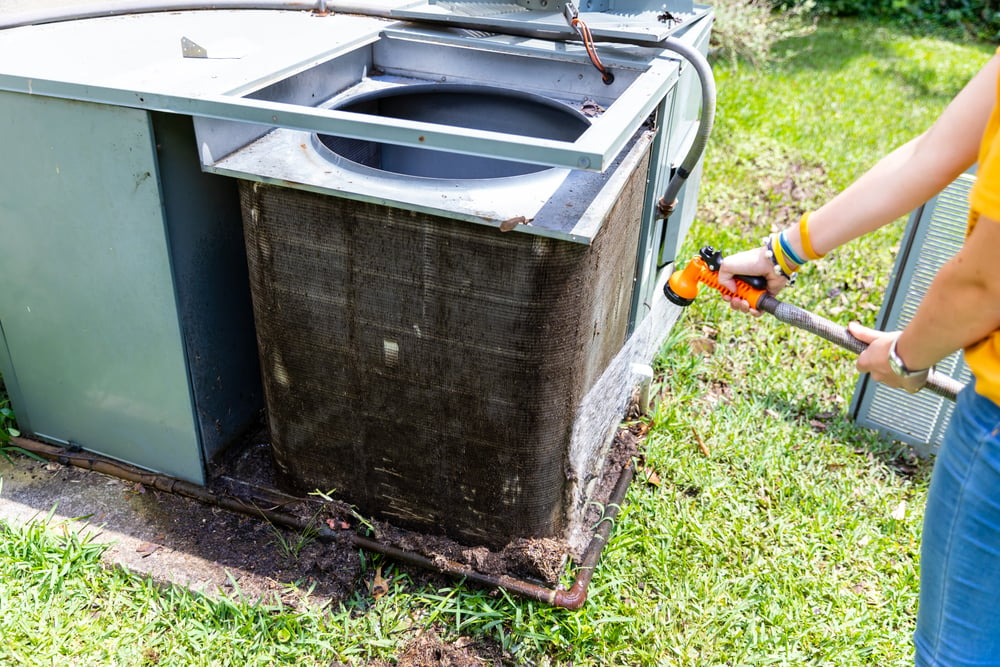
What Do I Do About a Noisy but Not Malfunctioning A/C Unit?
If you ask a service professional to come by and they find nothing wrong with your loud A/C, or you are just looking for ways to lessen the sound of the unit, there are some options to muffle the noise.
Soundproofing is a great way to keep outside A/C unit noises from being heard inside your home. Here are some ideas:
- Remove the top of your A/C’s outdoor unit and install a sound blanket over the compressor—the blanket sits right on top of it.
- Install shrubs or sound-dampening fencing with overlapping boards around your A/C unit. This option can also hide the outdoor component, which many homeowners find aesthetically pleasing. Make sure to place the fence at least three feet away from the air conditioner, so it can get the airflow it needs to work properly.
You can place some large houseplants or soundproof drapes in front of the windows on the side of the house facing the A/C.

When Should I Replace a Noisy A/C Unit?
If your unit is getting older, replacing it may be the best solution. How long HVAC systems last varies depending on the type of unit, where you live, and how often you conduct HVAC inspections. However, excessive noise from an older unit is usually a sign of deterioration. Investing in a new air conditioner will likely allow you to have a quieter, more energy-efficient household.
Ready to take the next step in home ownership? Frontdoor offers a variety of ways to get things done. Whether you prefer connecting via video chat with trade industry Experts, receiving a list of vetted Pros for repairs, or utilizing our how-to library to DIY, we've got you covered.
With the Frontdoor App, completing tasks has never been easier, so why wait? Open the Frontdoor and start taking control of your home repairs. Download the app today!
Frontdoor assumes no responsibility, and specifically disclaims all liability, for your use of any and all information contained herein.
Was this article helpful?
